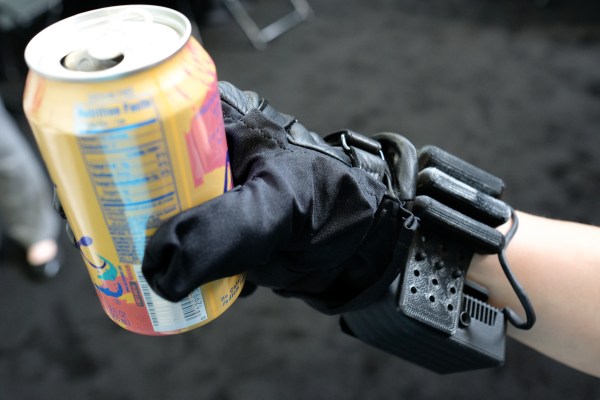In the future, said Andy Warhol, everyone will be bionic for fifteen minutes. I’m paraphrasing, but it looks like a Portuguese company called Nuada is about to give us that opportunity. Created by Filipe Quinaz and Vitor Crespo, the seed-funded company pitched on our Disrupt stage and showed us one of the coolest pieces of hardware I’ve seen in a long time.
The Nuada is a smart glove. It gives back hand strength and coordination by augmenting the motions of your palm and digits. It acts as an electromechanical support system that lets you perform nearly superhuman feats or simply perform day-to-day tasks. The glove contains electronic tendons that can help the hand open and close and even perform basic motions and a sensor tells doctors and users about their pull strength, dexterity, and other metrics.
Why would you want to use it? First you could get stuck with reduced hand strength due to injury or illness. This fixes that. Second it can help with hand strength while doing manual work. You can hold things longer with less muscle fatigue and generally work faster.
“We then use our own electromechanical system to support the user in the movement he wants to do,” said Quinaz. “This makes us able to support incredible weights with a small system, that needs much less energy to function. We can build the first mass adopted exoskeleton solutions with our technology.”
The project was born out of real need.
[gallery ids="1542488,1542487,1542486"]
“Back in 2013 I broke a bone in my hand and realized how bad it is to have lack of hand function,” said Quinaz. “I was working in a big textile company at the time, and also involved in University research, so it all came together.”
The team started out at University but the project won the Microsoft Imagine cup and they ended up in Seattle. They built the project over a two-year period and are finally ready to show off the glove. There is no pricing yet but the team hopes to put this into therapeutic use soon, allowing those with limited hand motion to regain at least a portion of their dexterity.
